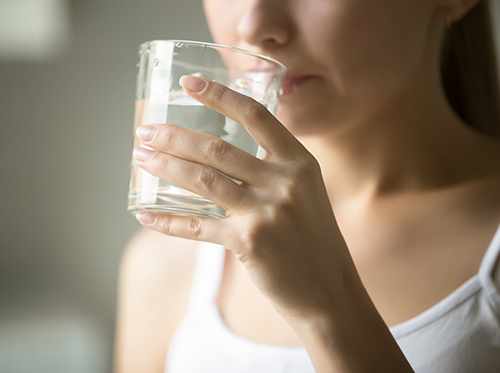
Have you been having trouble getting a good night’s rest?
Sometimes the reason for a poor night’s sleep is obvious. A midnight horror movie. A bedtime espresso. That anchovy and pineapple pizza you had for dinner. Not much we can do about these problems.
Sometimes, though, the cause of your sleep difficulties is dental in origin, and that is something Dr. Gary Yanowitz can help with.
Teeth grinding, or bruxism, is a very common dental problem. When people with this condition sleep, their jaws clench and their teeth grind against each other throughout the night. When to suspect you might suffer from bruxism?
- You wake with a sore jaw, or you hear pops or clicks when you move your jaw
- You suffer from frequent headaches or facial pain
- Your teeth are chipped, cracked, flattened, worn down, or sensitive
- You wake up tired, because grinding affects the quality of your sleep
- Partners, siblings, or roommates complain about nocturnal grinding noises affecting the quality of their
Pain and fatigue are unpleasant enough, but there are additional serious consequences for those who suffer from bruxism. Our jaws are extremely powerful, and clenching and grinding can put hundreds of pounds on pressure on teeth and jaws over hours of sleep. These forces can lead to:
- Damaged teeth. Cracked, chipped, and worn down teeth can mean veneers, crowns, and root canals. Seriously compromised or broken teeth might need to be extracted.
- Damaged dental work. Bruxism can lead to fractured veneers and damaged fillings and crowns. If the damage is too serious for repair, replacement might be necessary.
- Damaged jaw joints. Severe cases of bruxism can lead to injury to the temporomandibular joint, or TMJ, the complex hinge that allows our jaws to move up and down, back and forth, and side to side.
While these problems can be treated with restorations, or root canals, or implants, or surgical procedures, prevention is clearly a much better option for a healthy smile. And one of the simplest and most effective treatments for preventing the damage caused by bruxism is a night guard.
Night guards fit over the affected teeth to prevent them from touching directly, saving tooth and enamel from injury and wear. Not only do night guards prevent contact, they spread the biting forces of the jaw over the surface of the guard to greatly reduce their impact. And because they also stop the jaw muscles from clenching tightly, there’s no excess stress placed on the temporomandibular joint.
While over-the-counter products are available, it’s best to see Dr. Gary Yanowitz for the most effective night guard. A custom night guard is designed to fit your individual teeth and mouth perfectly. Impressions or 3D scans are taken in our Cooper City, FL office, and a guard is fabricated with the precise shape, strength, and thickness you need to protect your teeth. And, as a bonus, custom night guards offer the most comfortable fit for the most comfortable night’s sleep.
Scary movies, late night caffeinating, creative food combinations—not much we can do about those! But if you’re suffering lost sleep and painful mornings because of tooth grinding, give us a call. A night guard just might be the key to sweet dreams.




